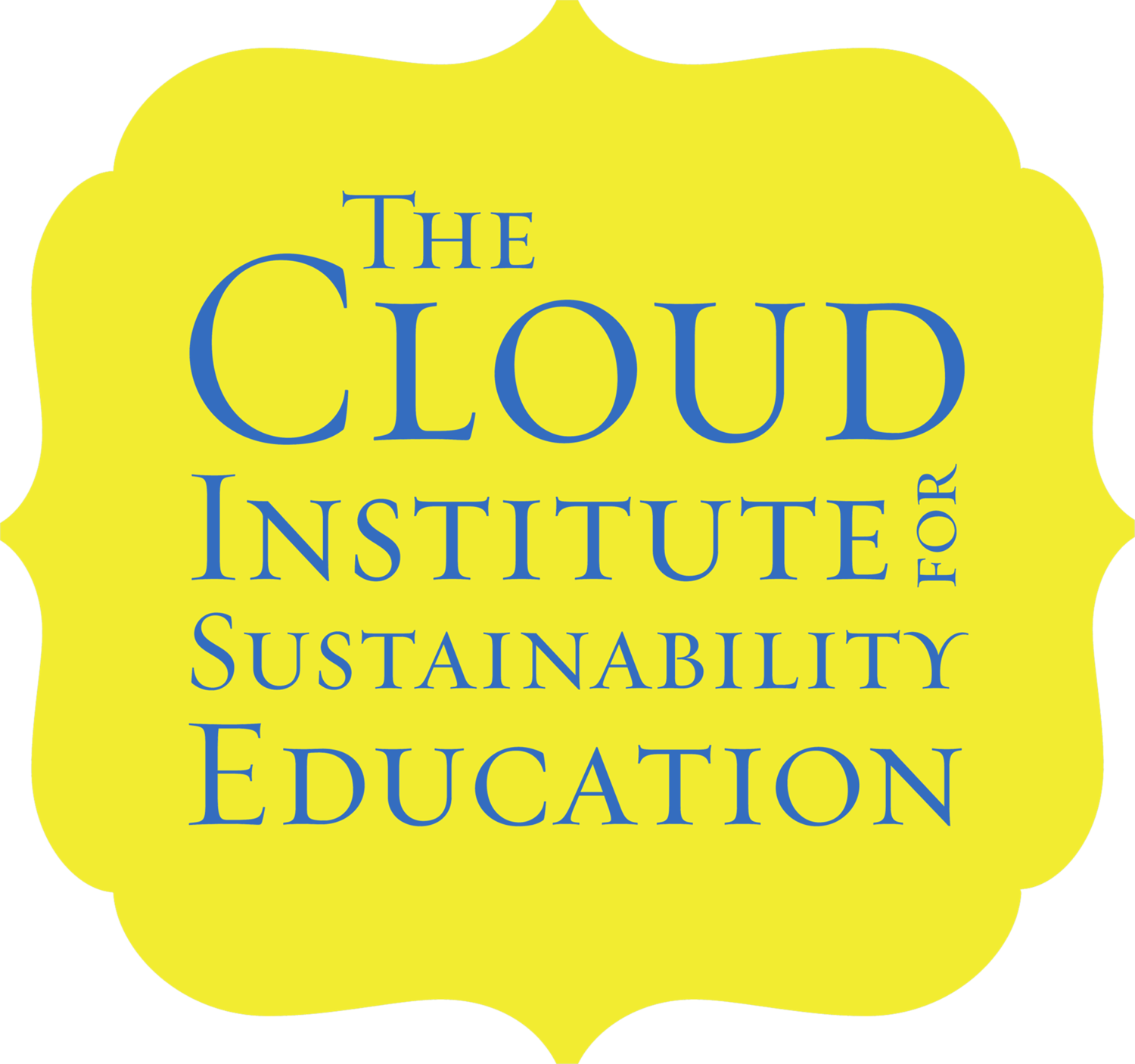Spring News | EfS Resources for Educators
/Why Educate for Sustainability?
Introduction to Education for Sustainability One Day Workshop
Attend Online or Onsite
This special, single-day offering is designed to increase participants’ awareness, knowledge, and understanding of the core concepts, content, and habits of mind that characterize Sustainability and Education for Sustainability.
Or attend the Five Day Curriculum Design Studio which includes the One Day and four additional days to design curricula that educates for sustainability. We use backwards design, or Understanding by Design, to reorient, innovate, build, and map curricula to meet academic standards and EfS standards, performance indicators, and enduring understandings.
For educators, administrators and anyone interested in exploring what's possible when we educate for sustainability.
Our Partnership with Subject to Climate
The Cloud Institute Proudly Announces Our New Partnership with Subject to Climate
The mission of Subject to Climate is to make climate change teaching and learning accessible to all. By enabling educators from all subjects and grade levels to teach about climate change, they believe that the next generation will be inspired to take climate action. We agree. Subject to Climate is a rich resource database of K-12 teaching materials vetted by a team of former and current teachers, scientists, and climate activists. It is one of the best collections I have seen, and I really appreciate the seriousness with which they solicit and accept resources.
I am really really, yes really mad about most of the climate education I have seen to date. No wonder children and young people have climate anxiety. I would have it too if I were educated about all the indicators of unsustainability, (of which climate change is one) without the muscle or the mindset to do anything about it.
Education for Sustainability Standards and Performance Indicators
There are Nine Core Content Standards
“We must educate our children in what no one knew yesterday and prepare our schools for what no one knows yet.” — Margaret Mead
The knowledge, skills, attitudes and habits of mind of Education for Sustainability (EfS) are embedded in The Cloud Institute's EfS Standards and corresponding Performance Indicators.
Aligned to national and state educational standards, each EfS Standard has a set of coded Performance Indicators used to guide educators as they infuse their school culture, curriculum, instruction and assessment practices with Education for Sustainability. We believe that by meeting these EfS standards, young people will be prepared to participate in, and lead with us, the shift toward a sustainable future.
EfS Benchmarks for Individual and Social Learning
Education for a Sustainable Future: Benchmarks for Individual and Social Learning
Education for a Sustainable Future: Benchmarks for Individual and Social Learning, released by The Journal of Sustainability Education represents the current and best thinking of forty-two scholars and practitioners of the field of Education for Sustainability. The Benchmarks embody the consensus that our field needs to demonstrate the impact of EfS and to catalyze wide spread implementation.
The EfS Benchmarks recognizes the processes that includes a whole system of dynamic and interconnected elements considered essential to educating for a sustainable future: Big Ideas, Applied Knowledge and Actions, Higher Order Thinking Skills, Dispositions, and Authentic Place-Based Community Connections.
Qatar Foundation Update
Last year I began working with the leadership team at the Education Development Institute (EDI) of the Qatar Foundation (QF) in Doha, Qatar. Since we began working together, we have spent coaching and professional time on Zoom, they have done a tremendous amount of work independently, I was there in Qatar for 10 days in October and will I be there again for 10 days in June.
In that relatively short amount of time, Ghada Haddad, Associate Director of Curriculum Development and Joanna Moe, Assistant Director of Professional Learning and Research and their incredible team of professional educators have steeped themselves in EfS. They are leading 11 of their primary and secondary schools (including IB schools, PBL, STEAM and Autistic and Special Needs Schools) in the work of cross-walking and embedding our EfS Standards and Performance Indicators and the EfS Benchmarks for Individual and Social Learning into the core curriculum in those schools. EfS is the integrating force for all their strategic initiatives. In fact when I am back in June, I will be talking with Ghada, Joanna and their new EDI Director Ed Lawless about EDI becoming a leadership hub for EfS in the region; I will be working with all 11 schools to review their work and coach them on next steps, and I will be working with the leadership team to contribute to their capacity to lead this work in Qatar and the region. The speed with which they have embraced and embedded EfS, and the depth and quality of their work to date is remarkable to me. Having said that, all you need to do is meet Ghada, Joanna, Ed and the team. Then you will understand. They have raised the bar of my expectations to the level of my aspirations. Now that I have seen that it is possible, I am going to raise the level of my expectations. Let’s make it the new normal! - Jaimie P. Cloud
Donate to Support Education for Sustainability
The Cloud Institute exists to ensure the viability of sustainable communities by leveraging changes in PreK-12 school systems so that we may prepare young people for the shift toward a sustainable future. Friends like you make it possible.
Your gift to The Cloud Institute gives us the flexibility to create new opportunities for the teachers, students and the communities we serve. Friends like you make the work we do possible.






